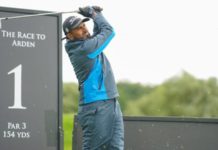Ivan Lendl and Alexander Zverev Sr. have known each other for decades. Born six weeks apart in 1960 — Zverev in the Soviet Union and Lendl in Czechoslovakia — they played once as junior tennis players, in the semifinals of the European under-18 championships in Maribor, Yugoslavia. According to Zverev Sr., Lendl won, 6-3, 6-3.
“That was the only time we played,” Zverev Sr. said as he walked off the practice court at the United States Open with Lendl on Friday. “He was too good for me.”
In the summer of 1984, while Lendl was celebrating his first major championship at the French Open, Zverev Sr. was winning a gold medal at the Friendship Games in Katowice, Poland. Friendship-84, as the competition was also known, was a hastily arranged multisport competition designed to accommodate Eastern Bloc nations that had boycotted the Summer Olympics in Los Angeles.
As Lendl won seven more Grand Slam titles and soared to No. 1 in the world, Zverev’s career stalled. He qualified only twice at majors, at the 1985 Australian Open and at Wimbledon in 1986, and neither time did he advance beyond the first round.
But their paths have converged again. On the eve of this year’s United States Open, Zverev’s son, Alexander Jr., or Sascha, as he is known, announced that he had added Lendl to a coaching team, which includes his father, the trainer Jez Green and physiotherapist Hugo Gravil. Green and Lendl had also worked together when Lendl was coaching Andy Murray.
Zverev Jr., who represents his native Germany, said he met Lendl when he was training at Saddlebrook resort in Florida three years ago.
“The relation was always there,” Zverev, 21, said. “Obviously, the reason I’m with him is to compete and win the biggest tournaments in the world. It’s the only reason he would join as well.”
In their limited time together so far, “There’s a lot of tactical work, for sure,” Zverev said. “There’s a lot of mental work, as well, to kind of show me what it takes to compete for Grand Slams, to win Grand Slams. That, for sure, he has shown me a little bit.”
Lendl coached Murray twice, from 2011 to ’14 and again from 2016 until late last year. Murray won two Wimbledon titles, two Olympic gold medals and the 2012 United States Open during that time.
Zverev broke into the world’s top four last year, becoming the youngest No. 3 since Novak Djokovic attained the same ranking at age 20 back in 2007. He did so by performing consistently throughout the season, not by stellar play at the majors.
The same has held true this year as Zverev has won tour titles in Munich, Madrid and Washington. On clay, he ran up a 14-match winning streak that was stopped in the final in Rome by Rafael Nadal. He also reached the final in Miami in March.
But Zverev has fallen short at the majors, losing in the third round at the Australian Open and at Wimbledon, both in five-set marathons, and in the quarterfinals at the French Open to Dominic Thiem. That was the only time in Zverev’s four-year professional career that he had advanced to a major quarterfinal.
The No. 4 seed at the United States Open, Zverev is in the third round for the first time in New York. He will play his fellow German Philipp Kohlschreiber on Saturday.
Lendl, too, struggled in the majors before that French Open championship in 1984. He played in 18 Grand Slam events, losing in four finals before he came back from two sets down to beat John McEnroe at Roland Garros in 1984. Murray had played in 24 majors, including in two Australian Open finals, before winning at the 2012 United States Open with Lendl in his courtside box.
“I always thought that Sascha’s game reminded me of Lendl’s,” said the former pro Leif Shiras, now a television commentator. “His game is profoundly sound from the backcourt, he has a big serve like Lendl, and he has his work ethic and commitment to science and training. The only thing he doesn’t have yet is Lendl’s tremendous forehand.”
Zverev could have hired Boris Becker, the head of the German Tennis Federation and Djokovic’s former coach, but decided against it.
“I always said that the only two options that I thought of were those two people,” said Zverev, who has been primarily coached by his parents for most of his life.
He said he chose Lendl because of his close relationship with Green and because Lendl’s life was less complicated than Becker’s these days. (Becker has been embroiled in financial and business problems over the last several years.)
Zverev has always had a diligent work ethic, but Lendl is testing his fitness mettle. Zverev, Lendl and Green have frequent competitions on the VersaClimber, a cardio fitness machine.
“I always win,” Zverev said. “I’m not just better than them, I’m better than everybody.”
One thing he does not do better than Lendl is play golf, though Zverev said that he was trying to keep up. He said that Lendl, in an attempt to motivate him, often tossed out motivational quotes from professional golfers.
On Friday afternoon, Zverev finished his practice session by sitting on a courtside bench with Lendl while the rest of his team hovered nearby. Lendl spoke, Zverev listened, occasionally sucking on a water bottle.
“He’s a smart man,” Zverev said. “He’s done it as a player, done it as a coach, so he knows what it takes. He knows how to make the best players even better. That’s why I took him.”
Source : NYtimes












